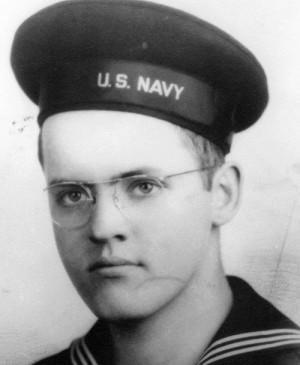
WE DIDN’T START THE FIRE
FROM A TO Z
On September 27, 1989, the iconic song by Billy Joel, We Didn’t Start the Fire hit the airwaves. It was a history lesson set to music. When you first heard the song, did you know or remember all the people places, things and events mentioned in the lyrics? I sure didn’t. Back in 1989 before the internet was something everyone had access to, my boyfriend (now husband) and I headed to the local public library and looked up all the historical references. This month, for the A to Z Challenge, I am writing about that history.
1951 – H-bomb
On May 12, the United States detonated a hydrogen bomb on an island in the Pacific. The hydrogen bomb is many times more powerful than an atomic bomb. The Russian development of an A–bomb convinced the US to proceed with development of the H–bomb.

On Eniwetok Atoll in the Marshall Islands, the United States, on May 12th, 1951, detonated the first hydrogen bomb. The bomb was based on the combination of a nuclei of heavy hydrogen, called deuterium, and the process of fission.
1959 – Hula hoops

1961 – Hemingway
1965 – Ho Chi Minh
This year marks the United States first major entrance into the war in Vietnam. Operation Rolling Thunder started which was the title of a gradual and sustained aerial bombardment campaign conducted by the U.S. 2nd Air Division (later Seventh Air Force), U.S. Navy, and Republic of Vietnam Air Force (VNAF) against the Democratic Republic of Vietnam (North Vietnam) from 2 March 1965 until 2 November 1968. This included the bombing of the Ho Chi Minh Trail supply line from North Vietnam to the Vietcong rebels in the south.
The Hồ Chí Minh trail was a logistical system that ran from the Democratic Republic of Vietnam (North Vietnam) to the Republic of Vietnam (South Vietnam) through the neighboring kingdoms of Laos and Cambodia. The system provided support, in the form of manpower and materiel, to the National Front for the Liberation of South Vietnam (called the Vietcong or “VC” by its opponents) and the People’s Army of Vietnam (PAVN), or North Vietnamese Army, during the Vietnam War. It was named by the Americans after North Vietnamese president Hồ Chí Minh. According to the United States National Security Agency’s official history of the war, the Trail system was “one of the great achievements of military engineering of the 20th century.”

Ho Chi Minh: A Vietnamese communist, who served as President of Vietnam from 1954–1969. March 2 Operation Rolling Thunder begins bombing of the Ho Chi Minh Trail supply line from North Vietnam to the Vietcong rebels in the south. On March 8, the first U.S. combat troops, 3,500 marines, land in South Vietnam.
1983 –Homeless Vets
According to federal law, the United States’ military involvement in the Vietnam War began in February 1961 and lasted until May 1975 (Over 14 years). Approximately 2.7 million American men and women served in Vietnam. During the war, more than 58,000 servicemen and women lost their lives. Vietnam Veterans represent the largest cohort of American Veterans in terms of service era. It goes unsaid that this large population had been exposed to war in general and conditions such as that during the Vietnam War, the U.S. military used more than 19 million gallons of various herbicides for defoliation and crop destruction in the Republic of Vietnam. Veterans who served in Vietnam anytime during the period beginning Jan. 9, 1962, and ending May 7, 1975, are presumed to have been exposed to herbicides (Agent Orange). Vietnam Veterans of America (VVA), the only national Vietnam veterans organization congressionally chartered and exclusively dedicated to Vietnam-era veterans and their families was established in 1979 so it is likely that Billy Joel is referring to research conducted by this organization that indicated that there is a growing number of homeless veterans from the Vietnam War.

Homeless vets: Veterans of the Vietnam War, including many disabled ex-military, are reported to be left homeless and impoverished.
1988 – Hypodermics on the shores
I remember this well. In 1988, the fear of AIDS was very high including that it could be contracted from shared needles. When needles began washing up on the beaches, people who had little chance of exposure previously visited the beaches in fear. Known as the Syringe Tide, it was an environmental disaster during 1987-88 in Connecticut, New Jersey and New York where significant amounts of medical waste, including hypodermic syringes, and raw garbage washed up onto beaches on the Jersey Shore, in New York City, and on Long Island. This forced the closing of beaches on the Atlantic coast. Officials scrambled to identify the source of the material as some local economies struggled with diminished tourism.

Hypodermics on the shore: Medical waste was found washed up on beaches in New Jersey after being illegally dumped at sea. Before this event, waste dumped in the oceans was an “out of sight, out of mind” affair. This has been cited as one of the crucial turning points in popular opinion on environmentalism.





 Check out my other blog
Check out my other blog I'M PUBLISHED
I'M PUBLISHED I'm Published Again
I'm Published Again









I had a hula hoop and never got the hang of it. I would have been better off with a pet rock.
LikeLike
Me too. My daughter could do though.
LikeLike
Hydrogen bombs and the nuclear age was probably the turning point of the 20th century and has influenced all that has come after their development. I was born into the Atomic Age and the power of the weapons has fascinated me throughout my life. It’s almost a wonder another hasn’t been used in warfare and I’d fully expect to see some type of these bombs to be detonated in the not too distant future. It’s a threat that hangs over the world.
Arlee Bird
Tossing It Out
LikeLike
So true. It is scary some of the leaders now in power with access to such weapons
LikeLike
What a great A to Z theme! I will be back now that I’ve found you. I am engaged to a Vietnam Vet (yes, we found love late in life!) and I know that war, Agent Orange or no, left marks still felt today.
Harry Potter
LikeLike
It sure did. Thanks for stopping by.
LikeLike
A great song! When I turn fifty, I plan to rewrite the lyrics of this song to cover events from my birth onward.
Sandra Ulbrich Almazan, Science Fiction/Fantasy Author
LikeLike
Sounds like a great future song.
LikeLike
This is just showing how much information is i n the one song. The Vietnam Vets is what touched me the most. I thought Hemmingway had cancer so he opted for suicide reather than a slower death that cancer can bring in.
LikeLike
I think that is likely correct
LikeLike